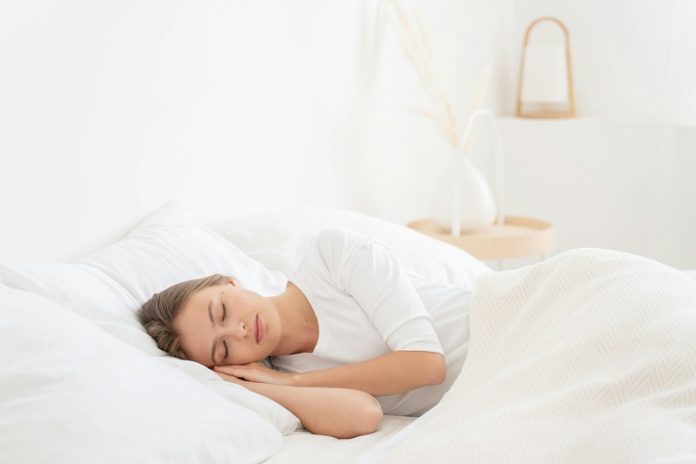
With busy schedules and endless to-do lists, sleep is often the first thing people compromise, especially during the holiday season.
But a new study from the University of Michigan reveals that aligning your sleep with your body’s internal clock—your circadian rhythm—can have a big impact on your mood.
When your sleep and body clock are in sync, it can help lift your spirits and even reduce symptoms of mood disorders like depression.
It’s long been understood that sleep affects mood—most of us have experienced feeling “cranky” after a bad night’s sleep.
However, this study, published in npj Digital Medicine, goes deeper, showing how mismatches between your sleep schedule and internal clock can negatively impact mental health.
Led by Professor Daniel Forger, the study highlights that when sleep cycles are misaligned with the body’s natural rhythms, it can lead to lower energy, mood swings, and symptoms of depression.
“This isn’t a cure for depression,” Forger emphasized, “but sleep is something we can control to positively influence our mood.”
The research used data from the Intern Health Study, which tracks first-year physicians. These interns wore fitness trackers, like Fitbits, that recorded their sleep patterns, heart activity, and circadian rhythms.
They also completed mood surveys and depression screenings.
By analyzing this data, the researchers developed algorithms to understand how well the participants’ sleep aligned with their internal clocks.
They found that misalignment—when sleep doesn’t match the body’s natural timing—was linked to worse mood scores.
On average, those with desynchronized rhythms had mood screening scores (measured by PHQ-9) that were 2.5 points higher, a clinically significant increase.
The study focused on two key parts of the body’s internal clock system:
- The central circadian clock, located in the brain, which regulates overall body timing.
- Peripheral clocks, such as the one in the heart, which controls activity levels at different times of day.
The researchers found that when sleep was out of sync with the heart’s clock, it negatively affected mood.
But the strongest impact occurred when sleep was misaligned with the central clock, particularly for shift workers like interns.
The findings suggest that wearable technology can help people understand their own sleep patterns and make changes to improve their mood. By tracking sleep and body rhythms, wearables offer practical tools for syncing sleep with the body’s natural cycles.
Forger believes this approach could benefit many people. “This is scalable,” he said. “It’s a way to help tons of people improve their mood using technology that’s already available.”
To boost your mood, try aligning your sleep with your natural rhythms:
- Go to bed and wake up at consistent times.
- Pay attention to when your body naturally feels tired or awake.
- Use a fitness tracker to monitor your sleep patterns and identify misalignments.
By understanding and adjusting your sleep schedule, you can enjoy better moods, more energy, and a happier outlook—just in time for the holidays.
If you care about sleep, please read studies about herb that could help you sleep well at night, and these drugs could lower severity of sleep apnea by one third.
For more health information, please see recent studies that coffee boosts your physical activity, cuts sleep, affects heartbeat, and results showing how to deal with “COVID-somnia” and sleep well at night.
Source: University of Michigan.








Leave a Comment